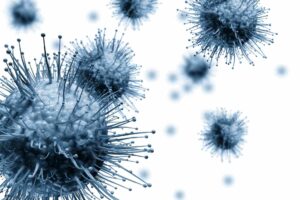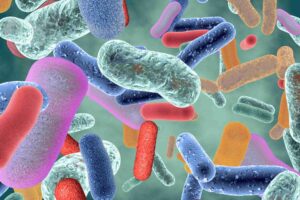Gastroenterology
Gastroenterology, Pediatrics
New research highlights how microbial signatures could be used to prevent necrotizing enterocolitis, leading to faster diagnosis.
Gastroenterology
The virome might be used in therapeutic approaches: eliminating or replacing disease-driving intestinal viruses with health-promoting viruses may be beneficial for people with IBD.
Gastroenterology, Video
Patrice Cani (Université catholique de Louvain) discusses the role of Akkermansia muciniphila in the gut barrier.
Gastroenterology
By analyzing stool samples from dozens of people in Sweden, researchers have found that the microbiota isn’t stable in adulthood.
Cardiology, Gastroenterology
Researchers have identified 10 species whose abundance was linked to blood levels of TMAO, a metabolite associated with cardiovascular diseases
Endocrinology, Gastroenterology
Repeated fecal microbiota transplants can improve the gut colonization of beneficial microbes in people with obesity and type 2 diabetes.
Gastroenterology
Researchers have found that β-carotene modifies the abundance of certain gut microbes and improves the intestinal dysfunctions
Gastroenterology
Researchers have now found that the interactions between existing gut commensals sets the odds for whether new microbes are acquired.
Gastroenterology, Nutrition
Periodic variations in diet can be important to avoid the fixation of specific mutations and maintain a high genetic diversity in the microbiota.
Gastroenterology, Nutrition
Seasonal changes in the gut microbiota can influence growth in wild pandas and may explain how these animals compensate for the lack of nutrients in leaf-eating season. A new study…











